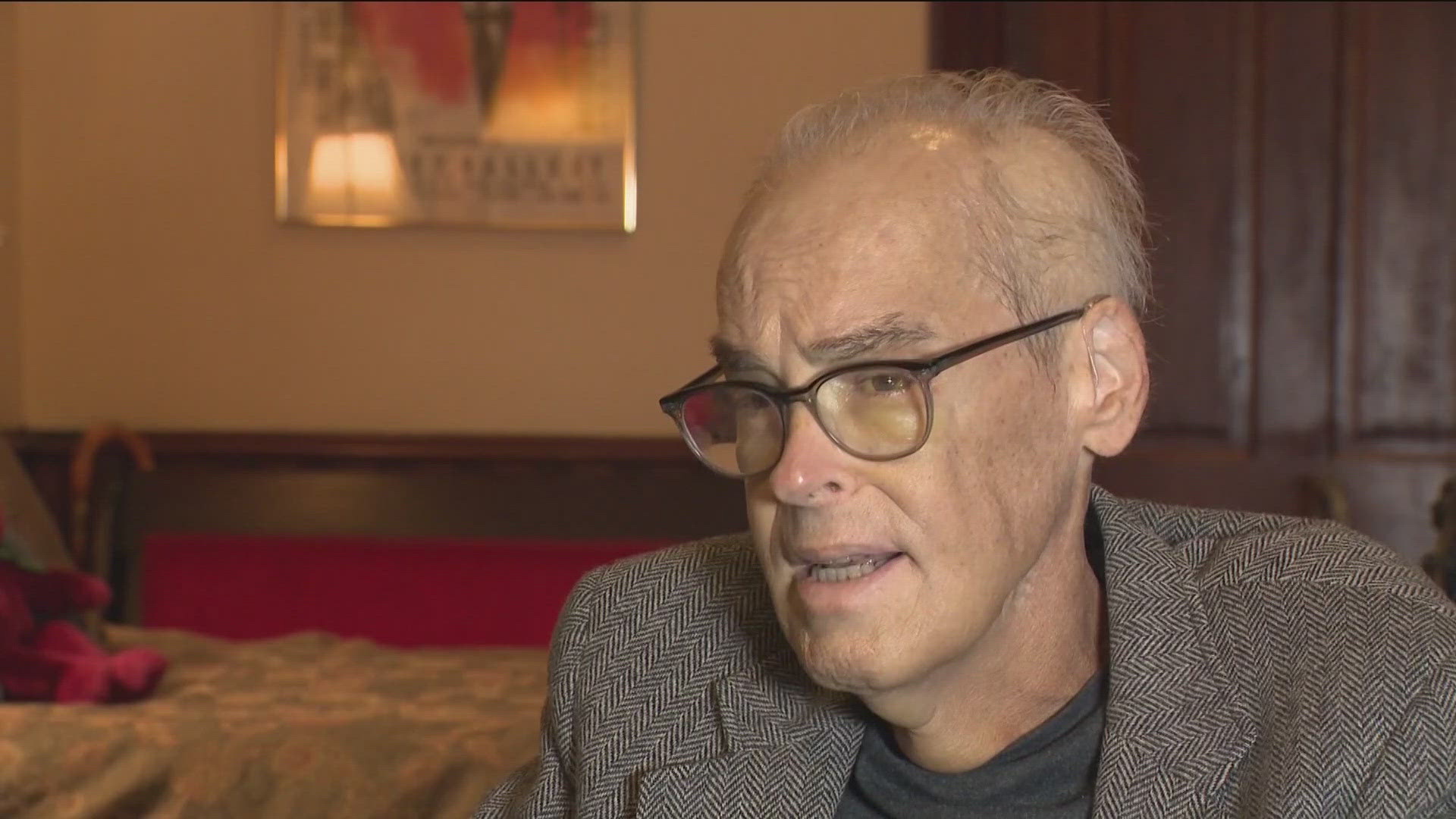AUSTIN, Texas — Chris Riley, a former Austin City Council member and local parks enthusiast, has died at 60 years old.
Riley, who served on the council from 2008 to 2015, had been battling complications from liver cancer. His wife, Denise Brady, said he died on Sunday night, just two weeks after celebrating his 60th birthday with friends and family by his side.
Riley was born in Austin and spent much of his time in the city's Tarrytown neighborhood. He completed his undergraduate degree at Harvard University before returning to his hometown, where he studied at the University of Texas at Austin's law school, according to KVUE's media partners at the Austin American-Statesman.
Before his time on the council, Riley could often be found at Wooldridge Park – in the heart of Austin – cleaning up trash and playing life-size chess.
“Something about seeing a giant chess piece catches the eye,” Riley said with a laugh in an interview with KVUE on Friday. “You’re drawn to it, it’s fun and anyone can play.”
During the late 1990s, he purchased the life-sized game of chess for Wooldridge Square and, over the years, he spent every Saturday there playing chess with his friends and strangers.
“At one time, the park was a true town center,” Riley told KVUE. “Now, it has become increasingly hard to find good reasons to be there in the park.”
Once a center stage for women’s suffrage rallies, presidential campaigns and concerts spanning back to World War II, Riley said people stopped using the park and cleaning it up wasn’t enough to attract people back to it.
“I wanted to make it an inviting, welcoming place.” he said.
With a cooler full of drinks and a chair in tow, Riley said he set up a game of chess every weekend. He was worried that the urbanization of downtown would have a negative effect on people, saying they would feel disconnected without public places to gather. Giant chess allowed people to have face-to-face personal interactions, even if attendance was low.
“It actually fostered very positive human interaction between people who otherwise never would have even crossed paths,” Riley said.
'A true pioneer'
Prior to becoming a member of the city council, Riley worked on the city's Planning Commission. In 1997, he helped found the Downtown Austin Neighborhood Association, which focuses on creating housing options, handling safety issues and more.
In 2008, he joined the city council and said he found it hard to host chess games. However, his belief in making places more accessible and welcoming didn’t stop there.
“Chris was a true pioneer, a man before his time,” Councilmember Ryan Alter (District 5) said.
Alter said Riley was a lone voice for years on highlighting parking reform, pushing for issues like protected bicycle lanes and increased housing options, including garage apartments and spaces easily accessible by public transit.
"Chris really wanted to have a well-connected urban environment where people could walk, ride their bike, just really get around without having to get in their car," Alter said.
As part of his effort to create a healthier planet, Riley was known to ride his bicycle to get around.
In 2014, Riley decided to leave a race for city council and instead continue his education, receiving a master's degree in urban placemaking and management from the Pratt Institute in New York. Even then, he continued to work on projects he was passionate about, including Safe Streets ATX, which creates accessible paths throughout Austin.
Leaving a legacy
Alter said Riley laid out the foundation for a more accessible Austin, and council members want to carry on the torch in his honor.
“He was one of the true grassroots leaders of the modern movement for urbanism in the city,” Alter said. “We stand on the shoulders of people like Chris.”
Earlier this year, the Austin City Council named a portion of the Shoal Creek Trail after Riley.
Approximately three years ago, in 2021, Riley was diagnosed with head and neck cancer. He had been in remission until last August, when he began to experience complications of liver cancer, according to his wife.
Before his passing, Riley told KVUE on Friday, “We have so much love to share, and so we just need the right places in which to do that."
Riley is survived by his wife, his parents, his sister, brother-in-law, his older brother, his younger brother, two nieces, three nephews, a grandniece and nephew and many friends.
Funeral arrangements for Riley are pending.
Riley told KVUE there is not yet a permanent person to carry on his tradition of hosting life-size chess in Woolridge Square. Please contact Jessica Cha at jcha@kvue.com if you’re interested in taking over the tradition.

